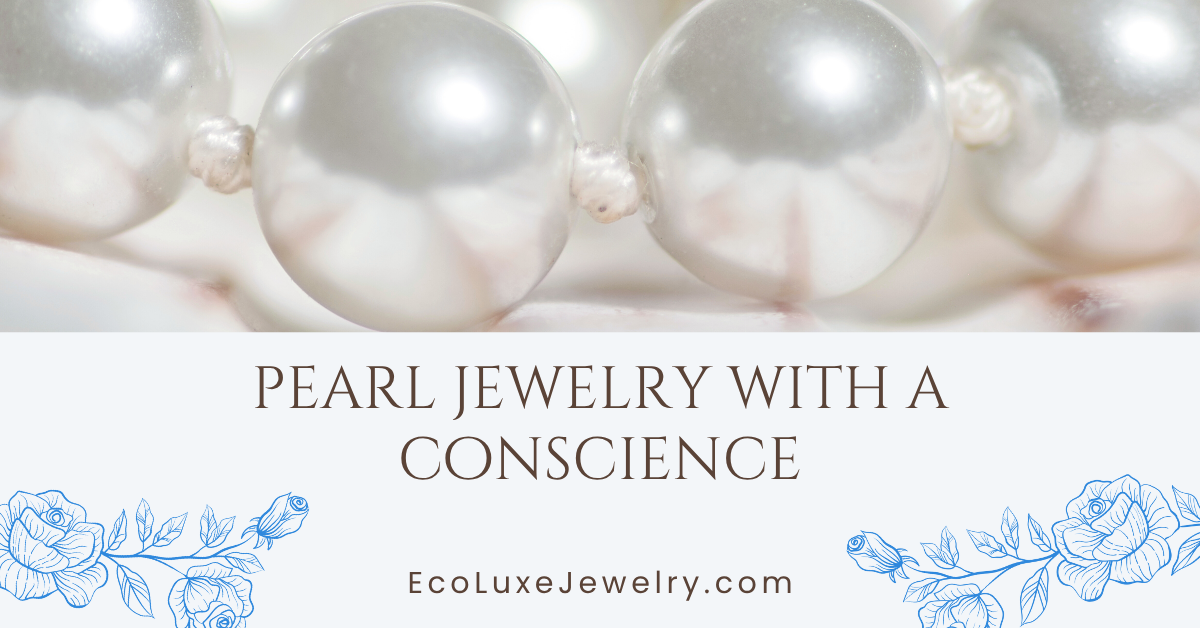Pearl jewelry has always been a symbol of elegance and natural beauty. Whether it’s a simple pair of studs or a classic necklace, pearls never go out of style. But today, more people want jewelry that does more than just look good. They want pieces that are made the right way—clean, fair, and kind to the planet.
This post explores how pearl jewelry can be both beautiful and responsible. We’ll show you what makes it sustainable, how ethical pearl farming works, and how to choose pieces that match your values.
What Makes Pearl Jewelry Sustainable?
Pearls are natural, but how they’re farmed makes a big difference. Sustainable pearl jewelry comes from farms that take care of the environment and treat workers fairly.
Here’s what makes pearl jewelry more sustainable:
- Eco-Friendly Farming Practices: Sustainable pearl farms maintain clean water systems, avoid harmful chemicals, and focus on environmental regeneration rather than exploitation.
- Low Carbon Footprint: Pearl farming typically has a much smaller carbon footprint and cause less damage than traditional mining, especially when done in small-scale, eco-conscious operations.
- Biodegradable Beauty: Unlike synthetic gems or heavily processed stones, pearls are naturally occurring and biodegradable.
- Local Artisan Craftsmanship: Many ethical brands support local artisans, ensuring traditional techniques are preserved and workers are paid fairly.
Quick Fact: Oysters are natural water purifiers. In a healthy environment, one oyster can filter up to 50 gallons of water per day—so ethical pearl farming can actually help keep oceans clean.
How Ethical Pearl Farming Works
Pearl farming can be gentle on the planet—but only when done the right way. Ethical pearl farming means protecting the ocean and treating workers with care.
Here’s what to look for:
- No Overcrowding: Oysters need space to grow healthy pearls. Ethical farms give them time and room.
- Animal Respect: Farmers use low-stress methods that don’t hurt the oysters.
- Fair Jobs: Workers get fair pay and safe working conditions.
- Support for Local Communities: Some farms work with Indigenous groups and small communities to share profits and keep traditions alive.
Most pearls on the market today are cultured, which means they grow with help from humans. Cultured pearls can still be ethical—if farms follow good practices.
Types of Pearls and Their Impact
Some pearl types are more sustainable than others. Here’s a simple guide:
- Freshwater Pearls: Grown in lakes and rivers, mostly in China. They’re affordable and can be eco-friendly when the farms use clean practices.
- Akoya Pearls: From Japan and China. Known for their shine and round shape. Japanese farms often follow strict environmental rules.
- Tahitian Pearls: Dark-colored pearls from French Polynesia. These are often grown using natural, ocean-safe methods.
- South Sea Pearls: Large and high-quality pearls from Australia, Indonesia, and the Philippines. Australian farms lead in sustainability.
Tip: Look for brands that offer traceability—proof of where your pearl came from and how it was farmed.
How to Shop for Sustainable Pearl Jewelry
Want to buy pearl jewelry that matches your values? Here’s how to shop smart:
- Check the Brand’s Values: Ethical brands are open about where and how their pearls are made.
- Look for “Farm to Jewel” Info: Some brands let you trace your pearl back to the farm.
- Choose Slow Fashion Brands: These brands make small batches and focus on quality, not mass production.
- Watch the Packaging: Recycled or reusable packaging is a bonus.
- Skip Fast Fashion: Cheap pearl jewelry often cuts corners on ethics and the environment.
Red Flag: If a brand says nothing about how their jewelry is made, it probably isn’t sustainable.
Ethical Jewelry Brands That Do It Right
Here are a few companies that focus on ethical and sustainable pearl jewelry:
- Washed Ashore: Uses recycled metals and upcycled pearls. Very transparent.
- Kamoka Pearls: Based in Tahiti. Known for using solar and wind power, clean farming, and community respect.
- Mejuri: Offers responsibly sourced pearls and uses recycled gold.
- Sophie Monet: Makes creative jewelry using reclaimed wood and responsibly sourced pearls.
Before buying, read the brand’s story and check if they explain their sourcing clearly.
Why It Matters
Pearl jewelry isn’t just about fashion. It’s about values. When you choose sustainable pearls, you:
- Help protect ocean life
- Support fair jobs and communities
- Say no to wasteful fast fashion
- Invest in timeless beauty with meaning
Every choice you make adds up. Even one ethical purchase can be a vote for a better world.
Final Thoughts: Wear What You Believe In
Pearls are making a comeback—not just in style, but in values. Sustainable pearl jewelry lets you shine while doing good. When you wear pearls that are kind to people and the planet, you’re part of a growing movement that sees beauty in responsibility.
So next time you shop for jewelry, ask yourself: Is it as kind as it is beautiful?
If the answer is yes, wear it proudly.
